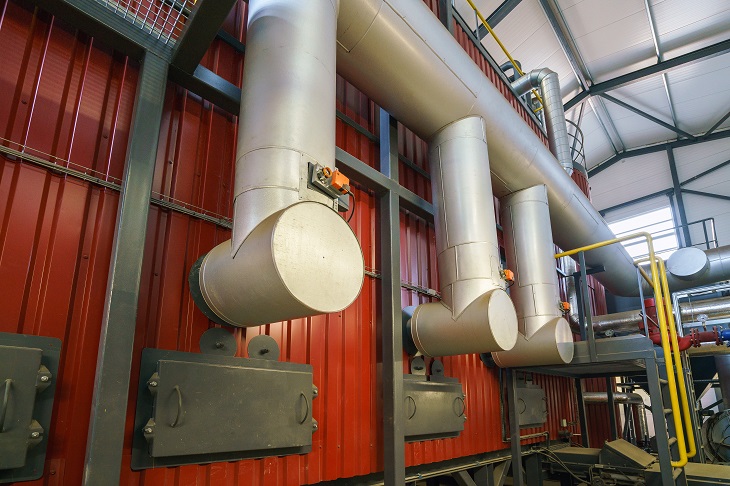As the world transitions towards sustainable energy solutions, biofuel technologies are emerging as key players in the quest for greener alternatives. Biofuel boilers, which utilize renewable organic materials to generate heat, are at the forefront of this transformation. They offer an environmentally friendly alternative to fossil fuels and contribute significantly to reducing greenhouse gas emissions. This blog delves into the latest innovations and advancements in biofuel boiler technologies, exploring how these developments are shaping the future of energy production.
Understanding Biofuel Boilers
Biofuel boilers are designed to burn organic materials, such as wood pellets, agricultural residues, and dedicated energy crops, to produce heat and power. Unlike traditional fossil fuel boilers, biofuel boilers use renewable resources that can be replenished over time, making them a more sustainable option.
Key benefits of biofuel boilers include:
- Reduced Carbon Footprint: Biofuels release less carbon dioxide compared to fossil fuels, helping to mitigate climate change.
- Renewable Resources: Biofuels are derived from renewable organic materials, reducing dependence on finite fossil fuels.
- Waste Utilization: Many biofuels are produced from agricultural or forestry residues, turning waste into valuable energy.
Innovations in Biofuel Boiler Technologies
Recent advancements in biofuel boiler technologies are enhancing their efficiency, reliability, and overall performance. Here are some of the most notable innovations:
1. Advanced Combustion Technologies
Modern biofuel boilers are incorporating advanced combustion technologies to improve efficiency and reduce emissions:
- Stoker and Grate Systems: New designs in stoker and grate systems enhance the combustion process, ensuring more complete and efficient burning of biofuels. This reduces ash production and improves overall heat output.
- Fluidized Bed Combustion: Fluidized bed technology allows for more uniform burning of biofuels by suspending the fuel in a stream of air, promoting better mixing and higher combustion efficiency.
Benefits: These technologies increase the efficiency of biofuel boilers, leading to higher energy output and reduced operational costs.
2. Enhanced Control Systems
The integration of advanced control systems has revolutionized biofuel boiler operation:
- Automated Feed Systems: Modern biofuel boilers feature automated feed systems that precisely control the supply of biofuel, optimizing combustion and minimizing waste.
- Smart Controls and Sensors: Advanced sensors and control systems monitor key parameters, such as temperature, pressure, and fuel quality. This allows for real-time adjustments and improved operational efficiency.
Benefits: Enhanced control systems improve the performance of biofuel boilers, making them more responsive to varying operational conditions and reducing the need for manual intervention.
3. High-Efficiency Heat Exchangers
Efficient heat exchange is crucial for maximizing the performance of biofuel boilers:
- Condensing Heat Exchangers: These heat exchangers capture and utilize waste heat from flue gases, improving overall thermal efficiency. By condensing water vapor from the flue gases, they recover additional heat that would otherwise be lost.
- Enhanced Material Technologies: Advances in material science have led to the development of heat exchangers with improved resistance to high temperatures and corrosive environments, extending their lifespan and reducing maintenance needs.
Benefits: High-efficiency heat exchangers increase the overall efficiency of biofuel boilers, leading to lower energy consumption and reduced operational costs.
4. Optimized Fuel Processing
Processing biofuels to ensure consistent quality and performance is crucial for boiler efficiency:
- Pelletization and Briquetting: Technologies for pelletizing and briquetting biofuels enhance their density and combustion properties. This results in more consistent and efficient burning.
- Advanced Pre-Treatment: New pre-treatment methods, such as torrefaction and hydrothermal carbonization, improve the energy content and combustibility of biofuels, making them more suitable for use in boilers.
Benefits: Optimized fuel processing ensures that biofuels burn more efficiently, leading to improved boiler performance and reduced emissions.
5. Integration with Renewable Energy Systems
Biofuel boilers are increasingly being integrated with other renewable energy technologies to enhance overall sustainability:
- Hybrid Systems: Combining biofuel boilers with solar thermal systems or heat pumps allows for more flexible and efficient heat production. Hybrid systems can utilize biofuels during periods of high demand or low renewable energy availability.
- Combined Heat and Power (CHP) Systems: CHP systems generate both heat and electricity from biofuels, maximizing the use of energy and improving overall efficiency.
Benefits: Integration with other renewable energy systems provides a more versatile and sustainable approach to energy production, reducing reliance on any single energy source.
6. Enhanced Durability and Reliability
Advancements in materials and design have improved the durability and reliability of biofuel boilers:
- Corrosion-Resistant Materials: New materials and coatings resist corrosion and wear, extending the lifespan of critical components such as heat exchangers and combustion chambers.
- Robust Design Improvements: Innovations in design have led to more robust and reliable boiler systems, reducing the frequency of breakdowns and maintenance requirements.
Benefits: Enhanced durability and reliability reduce maintenance costs and downtime, ensuring continuous and efficient operation of biofuel boilers.
Practical Considerations for Adopting Biofuel Boilers
While the advancements in biofuel boiler technologies offer significant benefits, there are practical considerations for businesses and organizations looking to adopt these systems:
1. Cost vs. Benefit Analysis
Evaluating the cost of implementing advanced biofuel boiler technologies against the potential benefits is essential:
- Initial Investment: Advanced technologies often come with higher upfront costs. Consider whether the long-term savings in energy and maintenance justify the initial investment.
- Return on Investment: Calculate the potential return on investment based on improved efficiency, reduced fuel costs, and lower maintenance expenses.
Assessment: Conduct a thorough cost-benefit analysis to determine whether advanced biofuel technologies are a viable option for your specific needs.
2. Fuel Availability and Supply Chain
Ensure a reliable supply of high-quality biofuels:
- Local Supply: Assess the availability of biofuel suppliers in your area and ensure a consistent supply of the required fuel types.
- Storage and Handling: Implement proper storage and handling practices to maintain the quality of biofuels and prevent issues with fuel delivery.
Planning: Develop a strategy for sourcing and managing biofuels to ensure uninterrupted operation of your biofuel boiler system.
3. Regulatory and Environmental Compliance
Compliance with regulations and environmental standards is crucial:
- Emissions Regulations: Ensure that the biofuel boiler meets local emissions standards and regulations. Advanced technologies often come with features that help in complying with stringent environmental requirements.
- Sustainability Certification: Consider obtaining certifications for sustainability and environmental performance to demonstrate your commitment to green practices.
Compliance: Stay informed about relevant regulations and ensure that your biofuel boiler system adheres to all necessary standards.
Conclusion
Innovations and advancements in biofuel boiler technologies are driving the shift towards more sustainable and efficient energy solutions. From advanced combustion technologies and enhanced control systems to optimized fuel processing and integration with renewable energy systems, these developments are transforming the way biofuel boilers operate.
By adopting the latest technologies and considering practical factors such as cost, fuel availability, and regulatory compliance, businesses can maximize the benefits of biofuel boilers and contribute to a greener, more sustainable future. Embrace these advancements to enhance the efficiency, reliability, and environmental performance of your biofuel boiler systems, and play a part in the global transition towards renewable energy.









+ There are no comments
Add yours